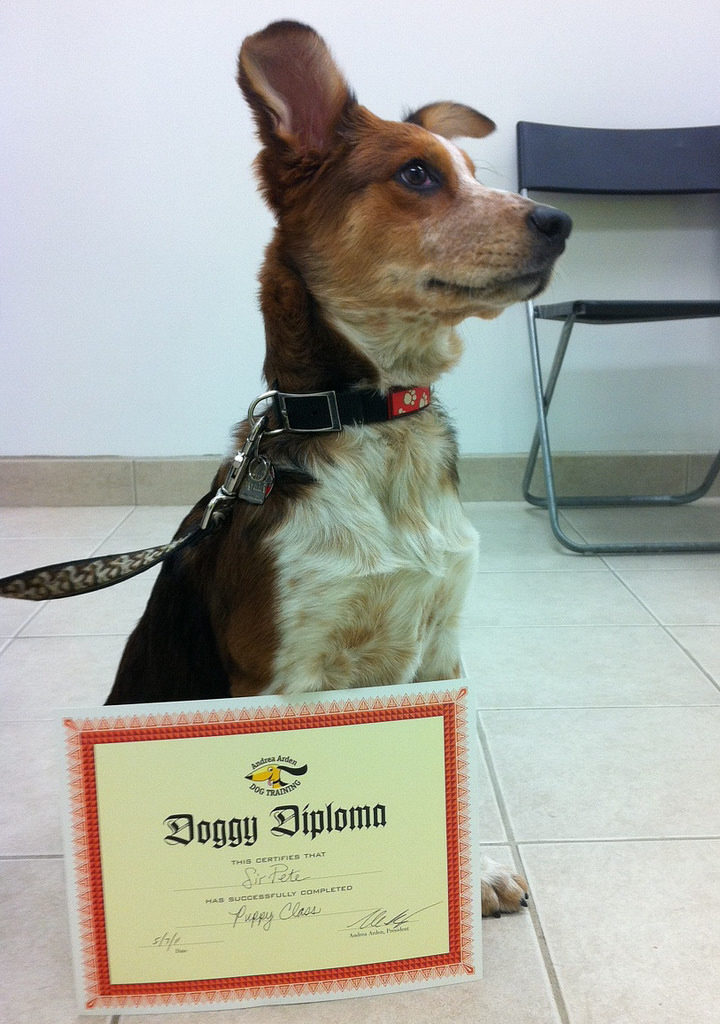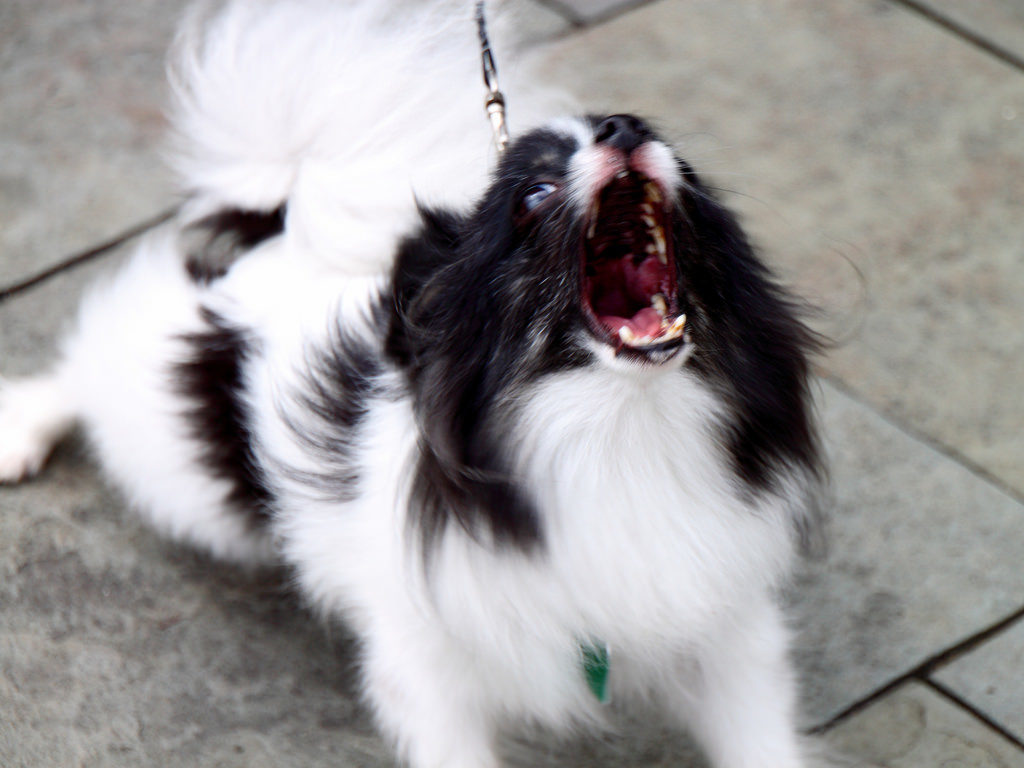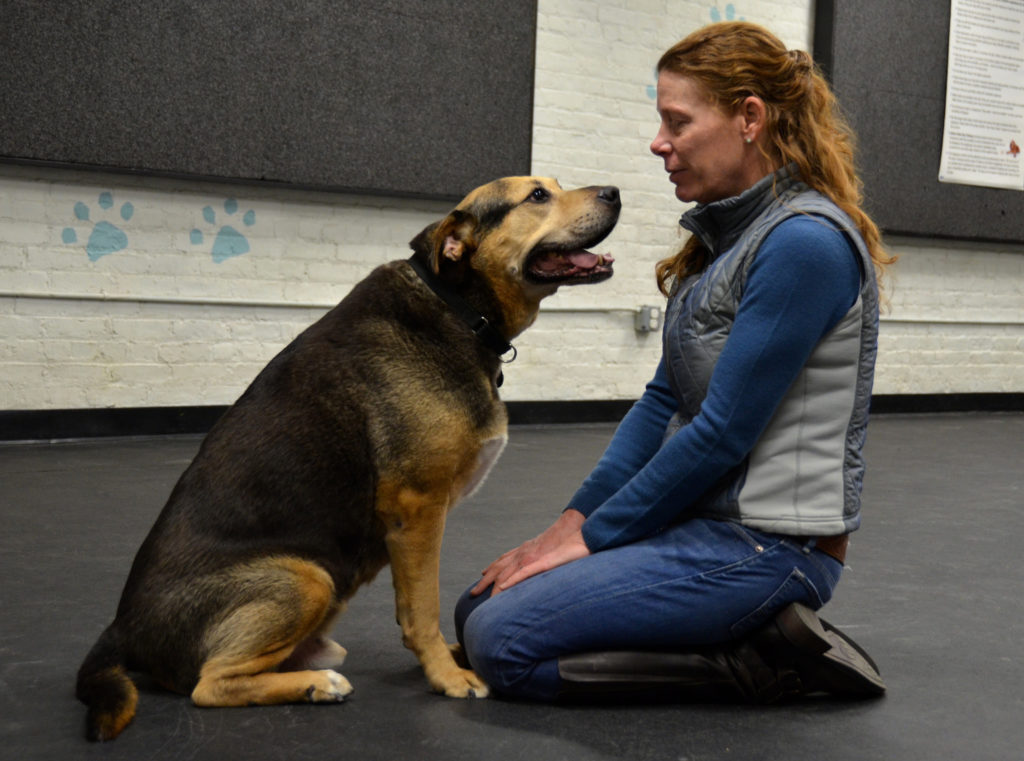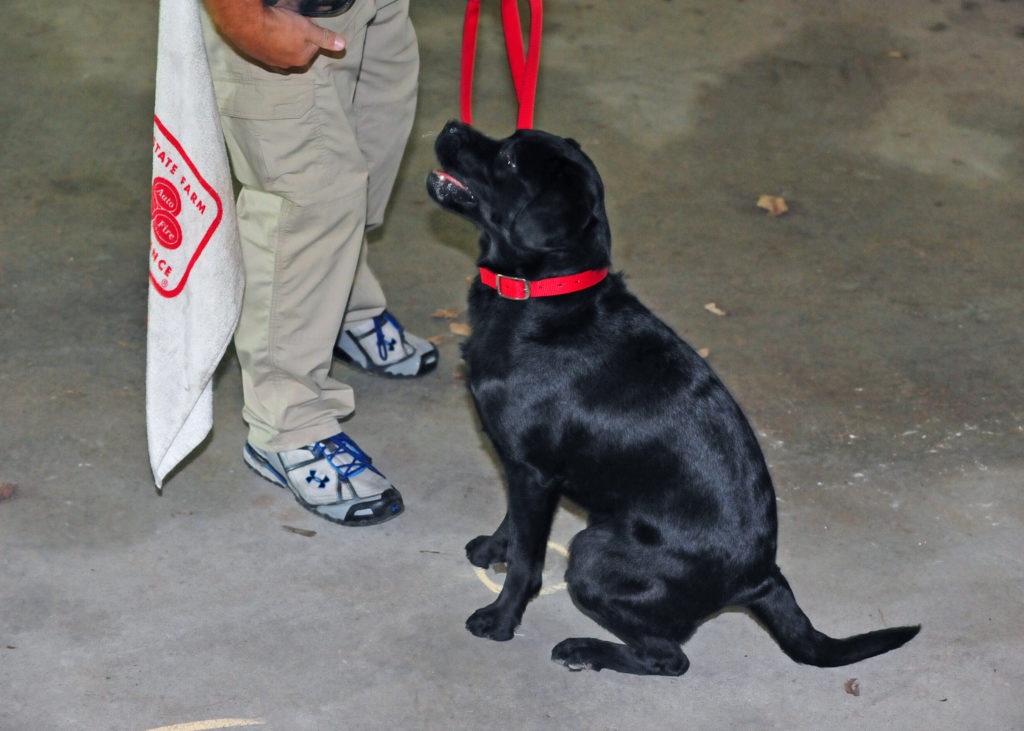Few things are more frustrating to a dog owner than when a dog doesn’t respond to a known cue. You went to basic obedience class and your dog learned every cue perfectly. Not only did he graduate, but you swear he was the star student – the teacher’s pet if you will.
And chances are, your dog was. So why isn’t he responding?

Top Reasons Dogs Don’t Listen To Their Owners
There are many reasons why a dog may not be responding to a cue he knows, but the following are three that are seen most often. Being aware of these can help you assess your dog when he stops listening to you and then make the appropriate changes.
#1 – Over Threshold
Put simply, over threshold means your dog is no longer using his “thinking brain” and is in “instinct” mode. This can happen when your dog is scared, stressed, or excited. For example, maybe your dog is fearful of kids and you are trying to get him to sit in front of a group of them. Your dog is not listening to your cue, she is trying to cope with her fear and may even be looking for an escape route. Many owners experience this when their dog-reactive dog sees another dog. It’s not that your dog is choosing to ignore you, they physically cannot respond to you at the time because their body is in survival mode. A dog acting like the dog below will most likely not respond to any cue.

#2 – Change in Picture
When a child goes to school and learns 2+2=4, they come home and can tell their parents this equation. This is because humans generalize learning – we can take knowledge out of context from our environment. Dogs, on the other hand, do not do this. If you have only ever asked your dog to sit while you stand in front of him during training class, do not be surprised if he does not respond when you sit down in class or ask him at home.

#3 – Use it or Lose it
While dogs may not learn like us, we both suffer from memory loss if a skill is not used. Can you do an algebra problem 10 years after high school? Probably not unless you use it in your profession. Just like us, dogs get rusty on skills if we haven’t asked them to do something in a while. If your dog is staring at you blankly, he may not remember what that cue means.

Be aware that these are not independent of each other. For example, your dog could be over-threshold and rusty on her cues.
How to Get Your Dog To Start Responding To Your Cues More
For all of the above issues, training is definitely the answer.
Dogs that are over threshold will need specialized training with the help of a dog trainer to increase their threshold slowly. This will allow them to listen to you even in those situations that cause fear, stress, or over arousal.
Generalization is easy to do – if your dog won’t respond to a known cue in a new location, just go back a few steps in your training and stop saying the cue until your dog is doing the behavior. After a few successful times, try asking the cue again. Once you have done this in a few different situations, your dog will learn the behavior is his actions independent of the environment. After that, you shouldn’t have any trouble getting him to respond in new places.

Even easier than generalization is practice! Help your dog not get rusty by practicing his skills a little each day. Just a short, ten minute session is enough to keep his memory intact and ready for showing off the next time you are at the park.

